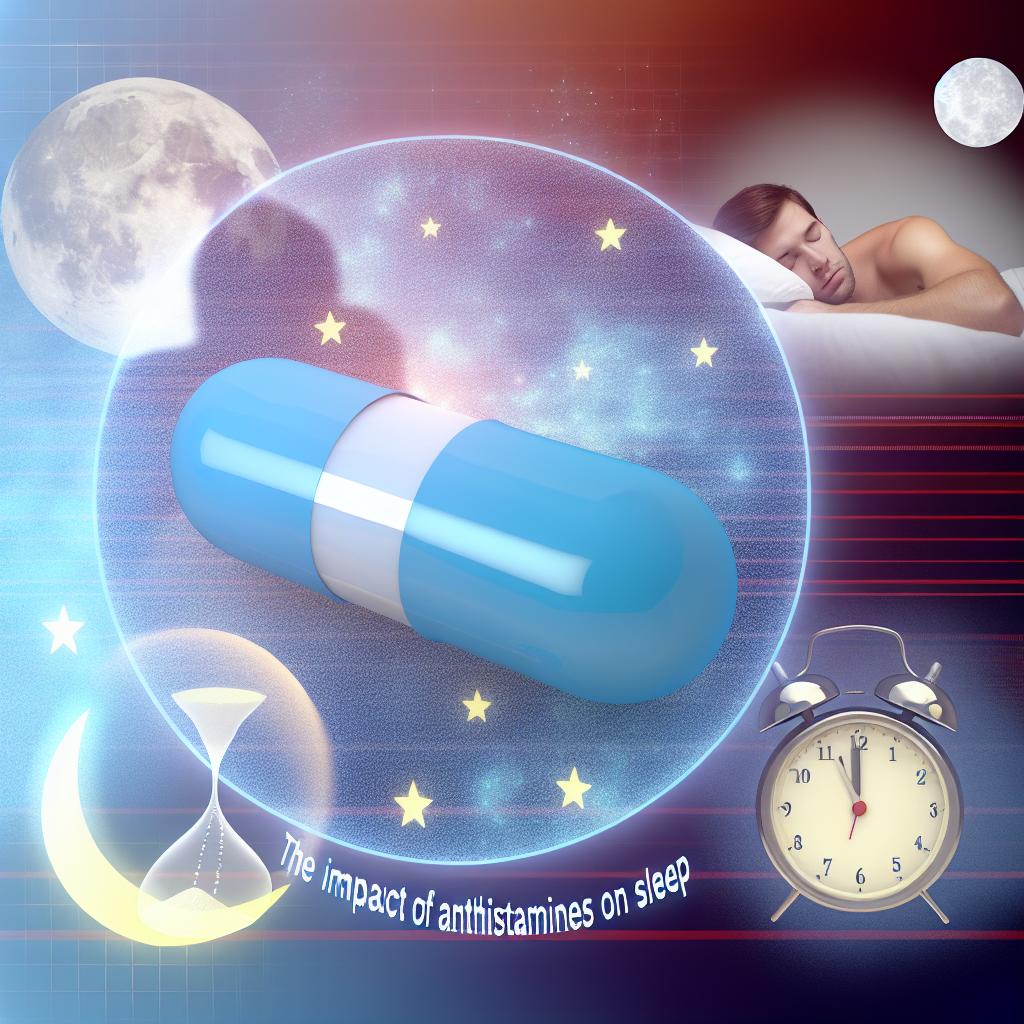
The impact of antihistamines on sleep.
The Role of Antihistamines in Sleep
Antihistamines are commonly recognized for their efficacy in alleviating allergic reactions. However, their impact extends beyond allergy relief, having a significant influence on sleep due to their sedative properties. Examining the mechanism of action of antihistamines and their effects on sleep is crucial for their informed and appropriate use.
Understanding Antihistamines
Antihistamines belong to a class of drugs that mitigate the effects of histamine, a chemical compound released by the body during allergic reactions. Histamines are responsible for triggering a range of allergic responses, including itching, swelling, and excessive mucus production. By blocking histamine receptors, antihistamines offer relief by diminishing these symptoms. This mechanism makes antihistamines invaluable in the management of allergies, yet their role in sleep induction is equally profound.
Sedative Effects of Antihistamines
A notable pharmacological effect of certain antihistamines, particularly the first-generation variety, is their sedative nature. These antihistamines are capable of crossing the blood-brain barrier, impacting the central nervous system, and inducing drowsiness. This sedative property has prompted some individuals to utilize over-the-counter antihistamines as sleep aids, seeking to improve sleep initiation.
First-Generation vs. Second-Generation Antihistamines
First-generation antihistamines like diphenhydramine and doxylamine are renowned for their drowsiness-inducing effects. Commonly found in medications such as Benadryl, these antihistamines are frequently incorporated into formulations designed for their sleep-inducing properties. Their ability to cross the blood-brain barrier more effectively than later generations accounts for their potent sedative action.
In contrast, second-generation antihistamines, such as loratadine and cetirizine, have a reduced likelihood of penetrating the brain, which results in considerably less sedation. These are typically preferred for individuals seeking allergy relief without the undesired side effect of significant drowsiness, thereby minimizing the impact on daily functioning.
Antihistamines and Sleep Quality
While antihistamines can facilitate the onset of sleep, there are implications for the quality of sleep experienced. The sedative effect may lead to improved sleep onset latency and quicker sleep initiation. However, the potential downsides include a reduction in the duration of deep restorative sleep stages, alongside disrupted sleep patterns. These factors may collectively impair the overall restfulness achieved during sleep, despite the initial ease of falling asleep. Hence, the utility of antihistamines as sleep aids must be weighed against the potential compromise in sleep quality.
Considerations for Use
The utilization of antihistamines as sleep aids warrants careful consideration. The sedative effects, while beneficial for initiating sleep, can lead to unintended consequences such as daytime drowsiness, diminished concentration, and impaired cognitive performance upon waking. Regular use of antihistamines for sleep induction is generally discouraged due to the risk of developing tolerance and subsequent dependency.
Given these considerations, it is prudent to approach the use of antihistamines for sleep enhancement with caution. Consulting healthcare providers is paramount to accurately weigh the benefits and potential drawbacks, along with exploring alternative treatments for sleep disorders. This ensures a holistic approach to sleep management and avoids reliance solely on pharmacological means.
Moreover, for individuals seeking a deeper understanding of how antihistamines impact sleep patterns and overall sleep health, resources such as The Sleep Foundation provide detailed information and guidelines.
Informed decision-making regarding antihistamine use, particularly for non-allergic applications like sleep induction, can lead to better health outcomes. Recognizing both the potential benefits and limitations of antihistamines in affecting sleep quality is essential for fostering optimal sleep health and minimizing unwanted side effects.
